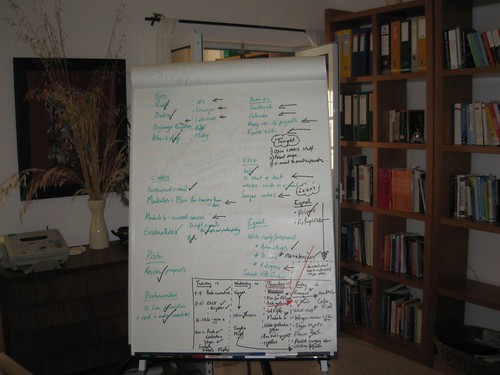Time out
I organised everything so that I wouldn't log on to the computer this weekend. These two/ three days were going to be the first time in years that I spent more than 24 hours away from my keyboard.
I didn't manage it, but ... the time was very important. The psychological business of being disconnected was important. Preparing to be disconnected was also important. Disconnected, that is, with all my tasks and feelings of accountability to online work partners, friends and truly special people.
First, I mostly slept. I slept at least 24 in 48 hours. Then, I spent time just doing the things I like to do on the computer. A bit like basic gardening. Weeding, getting rid of the bicho (bugs), enjoying the sun on your back as you do it, planting some seeds, watering .... and doing absolutely nothing ... even if it was doing nothing on the computer!
I managed, somehow, to let go of all the things that still need to be done. It was helped with a dinner party on Friday night where no-one knew of what I see as my professional identity. I felt free. Of course this is no big news for anyone who works 5 days a week or 9 to 5! It's just one of those things that some of us retards have to learn!
And then, quite unexpectedly, a wonderful thing happened to me this evening, at the end of my two/three day break. It happened before I could stop myself. A crucial chapter of my doctorate just popped out. I rushed to get pen and paper as it happened while I was eating dinner. It poured out onto the piece of paper without any effort on my part ... words that just made sense. They were words that gave me the the context for writing. Who knows, I may even discard them - but they they feel very important for what comes next.
So, maybe I still have to have my time away from the computer. But also I know that I need that time at the computer when I'm not totally overwhelmed with things I have to do. I need time when I can just wander about in the same way as I might wander about the Avenida and the baixa, gazing into shop windows, stopping for a coffee or to chat with someone at leisure.
I need a time for not thinking of that list of things on my flip chart and when my problem of bilingual continuous partial attention disorder doesn't get in the way. Some of it might have to be away from the computer but I also need to build in relaxation and play time on the computer.
Tags: phd, continuouspartialattention







